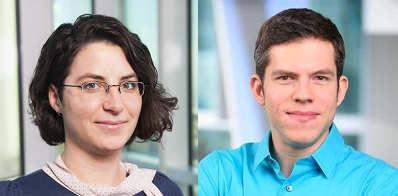OpenUP’s Open Science Pilots. Designing innovative peer review and dissemination pilot studies
DOI:
https://doi.org/10.7557/5.3975Abstract
The review-disseminate-assess cycle is a multifaceted process involving different stakeholders: researchers, publishers, research institutions and funders, private companies, industry, and citizens. The H2020 project OpenUP aspires to bring all these stakeholders into an open dialogue to consensually identify and spread the review-disseminate-assess mechanisms advancing evolving practices of RRI in an Open Science context. OpenUP will actively engage research communities and implement a series of hands-on pilots to validate OpenUP’s proposed (open) peer review, innovative dissemination, and impact indicator frameworks. The pilots will be carried out in close cooperation with selected, devoted research communities from four scientific areas: arts and humanities, social sciences, life sciences, and energy. This poster visualises UpenUP’s pilot design exemplified by two of the seven Open Science Pilots to be conducted by the project: 1) Open Peer Review for Conferences, and 2) Addressing and Reaching Businesses and the Public with Research Output.
The first pilot will evaluate the feasibility and acceptance of open peer reviewing in a conference setting. The specific implementation of the applied schema will be determined by the results from the state of the art study as well as the user questionnaire answers from other work packages of OpenUP. In comparison to the traditional way (double-blind evaluation of submitted papers by assigned reviewers chosen by the conference organisers) the new schema should allow for a more open and fair process as well as give additional incentives to reviewers. The actual pilot study will be conducted at a medium sized conference in consultation with the conference organisers. Follow-up questionnaires and interviews will show if the stakeholders preferred the new process and can provide constructive feedback for improvements and policy decisions.
The second pilot will test existing and potential alternative forms, formats, and channels of open science communication, and explore how the targeted audiences, in particular businesses and the public, can be best reached via these channels. In a preparatory phase the team will map open science communication formats/channels and their targeted audiences. The team will conduct a workshop to elicit the targeted stakeholders’ requirements and expectations towards a useful and appealing communication of scientific contents. This will be the basis of the second pilot presented here. It will actively involve one or more energy research community projects beyond the OpenUP consortium. The goals are to test the previously established communication standards and channels for the energy area, and evaluate the impact and resonance at the targeted audiences.
By actively involving research communities and other relevant stakeholders into the pilots, OpenUP will not only evaluate the practicability of the identified open peer review, innovative dissemination, and impact measurement methods in particular settings. It also intends to create and disseminate success stories, best/good practices, and policy recommendations, which will help further communities to implement working Open Science approaches in their research evaluation and communication strategies.Metrics





